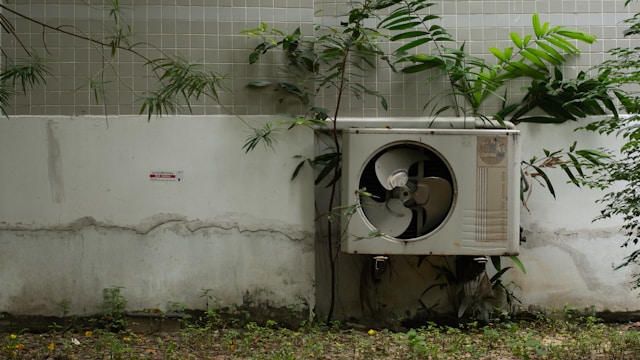Timing Your AC Replacement
The key to an affordable AC replacement begins with selecting the right time to make the change. Timing can play a critical role in controlling costs. Most homeowners make the mistake of replacing their air conditioning units during peak summer months when the demand for AC systems is at its highest. During this time, HVAC companies are inundated with service requests, and prices can rise due to the high demand.
To avoid overpaying, consider planning your replacement during the off-season, typically in early spring or fall, when demand is lower and companies may offer discounts or promotions. This timing allows you to get a better deal on both the equipment and the installation costs.
Assessing Your Cooling Needs
Another way to avoid breaking the bank when replacing your air conditioning system is by carefully assessing your cooling needs. Not all homes require the same type or size of air conditioning unit, and many homeowners overestimate the capacity they need, leading to unnecessary expenses. By getting a professional HVAC contractor to conduct a load calculation, you can determine the correct size of the AC system required for your home based on factors like square footage, insulation, window placement, and local climate. An oversized system not only costs more upfront but can also be less efficient, leading to higher energy bills and more frequent repairs.
Choosing Energy-Efficient Models
In addition to ensuring that you’re purchasing the correct size system, it’s essential to explore energy-efficient models. Modern air conditioning systems come with a variety of efficiency ratings, measured in SEER. A higher SEER rating indicates a more efficient system, which can translate into long-term savings on your energy bills. While high-efficiency models may cost more upfront, they tend to pay for themselves over time through reduced energy consumption.
The U.S. Department of Energy recommends selecting units with a SEER rating of at least 15 to 16, though some systems go as high as 20 or more. By investing in a high-efficiency air conditioner, you not only save money in the long run but may also qualify for rebates and incentives that reduce the initial purchase price.
Taking Advantage of Rebates and Incentives
Many utility companies, local governments, and manufacturers offer rebates or tax credits to encourage homeowners to switch to energy-efficient HVAC systems. These programs can significantly lower the cost of your new AC unit, sometimes by hundreds or even thousands of dollars. Be sure to research available rebates in your area and consult with your HVAC contractor, who may be able to guide you toward systems that qualify for these incentives. In addition to rebates, federal tax credits may also be available for purchasing energy-efficient equipment, further lowering the overall cost of replacement.
Exploring Financing Options
Financing options are another important consideration when replacing an air conditioning system. If you don’t have the funds to pay for a new system upfront, many HVAC companies offer financing plans that allow you to spread the cost of the unit and installation over several months or years. These plans often come with low or no interest rates for a certain period, making them an affordable way to manage the expense.
Before committing to a financing plan, make sure to read the terms and conditions carefully and verify that you are getting a competitive interest rate. You can also explore financing options through home improvement loans or personal loans from your bank, which may offer better terms than dealer financing.
Considering Partial System Upgrades
Another strategy to avoid breaking the bank during an AC replacement is to consider partial system upgrades. For example, if your ductwork is still in good condition but your air conditioning unit is failing, you may only need to replace the AC unit itself without redoing the entire system. This approach can save you money by limiting the scope of the replacement project. Similarly, upgrading certain components, such as thermostats or filters, can improve the overall efficiency of your system without the need for a full replacement. Smart thermostats, in particular, can enhance energy savings by allowing you to control your air conditioning remotely and optimize temperature settings based on your daily routine.
Maintaining Your New System
Maintaining your new air conditioning system is another critical step in ensuring that your investment remains cost-effective. While the initial replacement might seem expensive, poor maintenance can lead to breakdowns and reduced efficiency, driving up repair and energy costs over time. Regularly scheduled maintenance, such as changing air filters, cleaning coils, and inspecting refrigerant levels, will keep your system running smoothly and extend its lifespan. Signing up for a maintenance plan with your HVAC contractor can help you stay on top of these tasks and ensure that your system remains in peak condition for years to come.
Considering Used or Refurbished Units
It’s also worth considering used or refurbished air conditioning systems if you are on a tight budget. While purchasing a brand-new unit offers certain benefits, including warranties and the latest technology, a well-maintained used system can be a more affordable option for those looking to replace their AC without a significant financial burden.
Make sure that any used system you purchase is thoroughly inspected by a qualified HVAC technician to ensure it will meet your home’s cooling needs reliably. While the idea of buying secondhand equipment might seem risky to some, reputable dealers often provide warranties or guarantees on used systems, giving you peace of mind.
Negotiating with Contractors
Finally, negotiating with your HVAC contractor can go a long way in reducing the cost of your air conditioning replacement. Don’t hesitate to ask for discounts, promotions, or price matches. Many contractors are willing to offer deals, especially if they are competing with other companies for your business. Additionally, by bundling services—such as getting a new heating system installed at the same time as your air conditioning unit—you may be able to negotiate a lower overall price. Contractors may also offer savings on installation if you agree to schedule the work during off-peak times or if you refer additional customers to their business.
Conclusion
Replacing an air conditioning system doesn’t have to be an overwhelming financial burden. By carefully considering factors such as the timing of your purchase, selecting an energy-efficient system, exploring available rebates, and looking into financing options, you can manage the costs and make the process more affordable.
Whether you’re upgrading to a more modern and efficient unit or simply replacing an outdated system, taking the time to research your options and consult with experienced professionals can help you make a smart investment that keeps your home comfortable while staying within your budget. Proper maintenance and smart choices will also ensure that your new air conditioning system remains an asset to your home for years to come, providing comfort without the added worry of excessive expenses.



